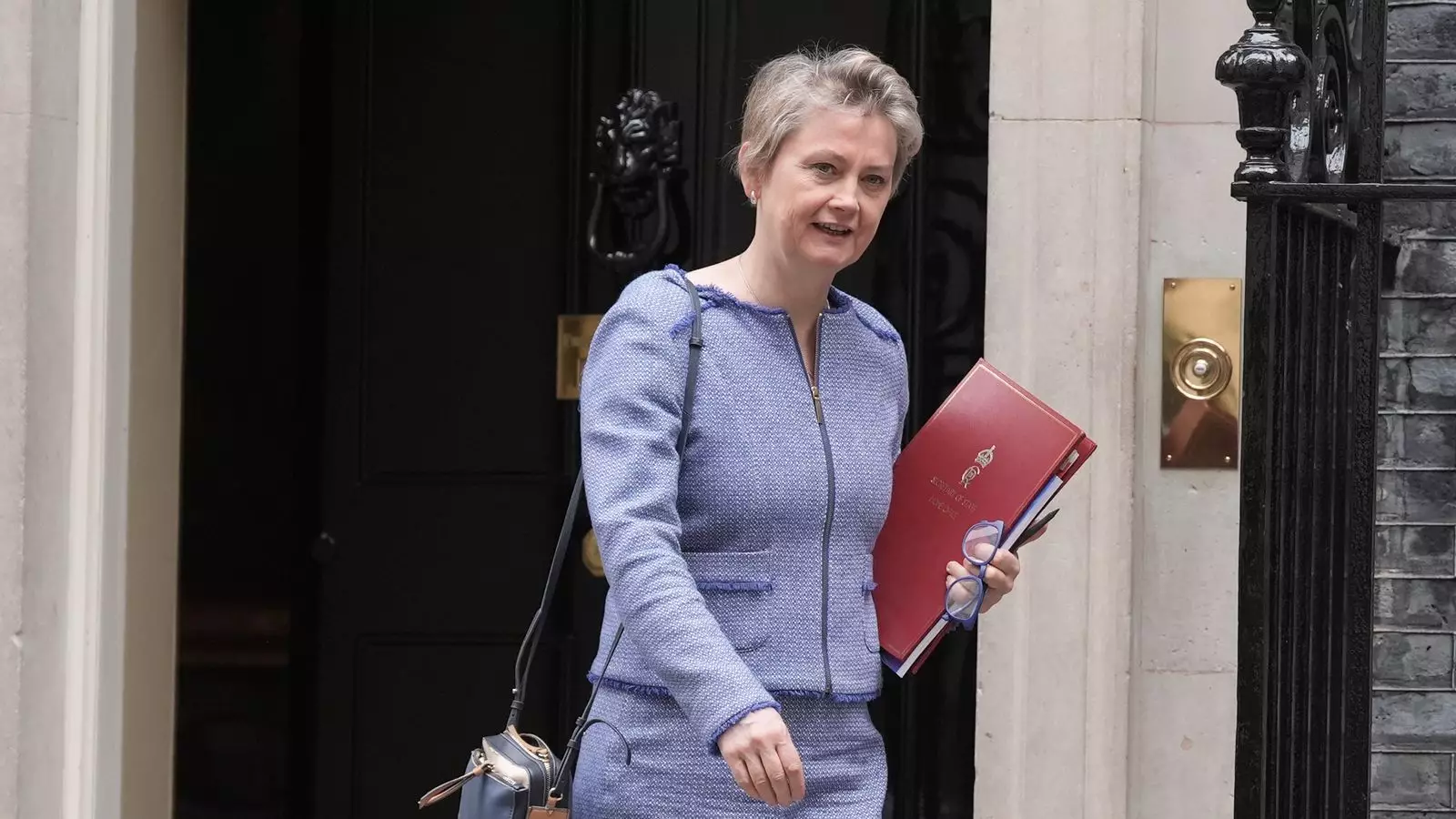The UK government’s recent announcement of a “one in, one out” deal with France offers a veneer of decisive action in managing the chaotic migrant situation in the English Channel. Yet, beneath this glossy surface lies a sobering reality: the plan is fundamentally unworkable and reflective of a superficial political attempt to placate public fears rather than a strategic solution. The Home Secretary’s admission that “we haven’t fixed the numbers yet” exposes a crucial weakness in the government’s approach—lack of concrete planning, foresight, and understanding of the complex dynamics at play.
This initiative’s reliance on vague targets demonstrates a troubling tendency to prioritize quick political wins over effective policy. Exchanging “migrants crossing the Channel” for “legal routes” appears bold on paper, but without clear numerical commitments and operational frameworks, it remains a symbolic gesture rather than a sustainable solution. The absence of defined quotas raises serious doubts about the government’s capacity to deliver on this promise, risking a scenario where deals are made more for political optics than actual impact. Essentially, the UK is engaging in a high-stakes game of illusion, promising to control migration without the necessary infrastructure or legal mechanisms to do so.
Surface-Level Diplomacy Thrives on Ambiguity
The lack of fixed numbers indicates a diplomatic strategy rooted in flexibility, but this flexibility plays into a broader pattern of evading accountability. Prime Minister Sir Keir Starmer and President Macron’s joint announcement may appear as a united front, but internally, the deal remains fragile and untested. The Home Secretary’s stance—that they need to trial and develop the agreement gradually—mirrors a reluctance to confront the complexities involved.
Crucially, the strategic ambiguity surrounding the operational scale of the deal signals a deeper failure: the government’s inability to design a comprehensive plan that addresses the root causes of migration or the legal and logistical challenges it entails. Relying on a pilot program that leaves key details unresolved is a gamble with serious consequences. It risks turning into a protracted, ineffective process that inflates political promises rather than curtailing illegal crossings or improving migrant management.
The Mirage of Brexit and the Myth of European Incompetence
French President Macron’s blameshift on Brexit as the primary catalyst for increased Channel crossings reveals a troubling tendency to attribute complex issues to political narratives rather than confronting systemic realities. While Brexit undoubtedly altered the UK’s migration framework, framing it as the sole reason for the rise in crossings oversimplifies the multifaceted nature of migration flows. This narrative conveniently shifts responsibility away from the UK’s own policies and inadequately addresses the global reasons for displacement—conflict, poverty, climate change—that no border deal can fix overnight.
Furthermore, Macron’s assertion that Brexit created an “incentive” for crossings dangerously distorts the facts, implying that post-Brexit UK deliberately fostered chaos for political gain. Such rhetoric obfuscates the fact that the UK’s fractured immigration systems and strained resource capacity are genuine issues demanding nuanced responses, not scapegoating. Instead of fostering genuine international cooperation, this narrative fuels animosity and delays the development of comprehensive, humanitarian solutions rooted in international solidarity.
Privatization of Responsibility and the Criminal Underworld
One of the most disconcerting aspects of the debate centers on the role of criminal smuggling gangs, who are labeled as the instigators of chaos. Their capacity to *weaponize* political rhetoric and manipulate public fears exposes a grim reality: migrant crossings are driven by bigger systemic failures, not simply criminal intent. These gangs thrive off chaos, charging exorbitant sums and exploiting vulnerable individuals desperate for safety. The government’s focus on criminal gangs—and their alleged use of the language of the government’s policies—risks absolving state actors of responsibility.
By refusing to acknowledge that systemic shortcomings—such as lack of safe legal pathways—contribute to the growth of these gangs, the government misses a vital point. Addressing the phenomenon requires dismantling the economic incentives that empower these organizations, which can only be achieved through robust international cooperation, comprehensive legal routes, and long-term planning. Simply blaming criminals without tackling the root causes perpetuates a cycle of criminalization, rather than public trust and meaningful change.
The Fragile Foundations of the “One in, One Out” Deal
Ultimately, the so-called “pilot” program symbolizes an empty promise cloaked in pragmatism. Without fixed targets, concrete procedures, and enforceable goals, the initiative risks becoming an unfulfilled political gambit. The government’s prevarication on numbers—initial reports suggesting 50 migrants weekly—undermines credibility and invites speculation about the deal’s true intentions. Is it a genuine effort at reform, or window dressing to reassure voters?
This lack of transparency calls into question the government’s sincerity. It seems more interested in managing perceptions than actually solving the migration crisis. The deal’s success depends on more than rhetoric; it demands accountability, clear legal frameworks, and compassion-driven policies—all missing from the current approach. Until these foundational elements are addressed, the “one in, one out” agreement remains a fragile illusion—an inadequate band-aid over a gaping wound that needs comprehensive, humane policy solutions.


Leave a Reply